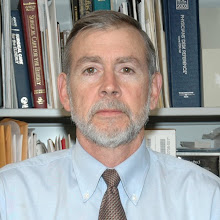- Thursdays and Fridays from 3 until 5 at Abra Carcel, a men's prison nearby Sacaba, about 3-4 kilometers away from us if we take the high road, which passes directly over the mountains on the east side of Cochabamba and winds down beside the prison. This group includes about 18 students in total; usually all of them are not there at one time;
- Tuesday night in our house on Colibri Street from 8:30 until 10 with the Sisters of San José, This group includes 3 students; as teachers in a local high school, they are required by their order to study some English language.
- Wednesday morning from 8 until 9:30 in a meeting room at the La Salette church near our house. This group includes one sister of the Missionary Sisters of Santísimo and three university-level students. This class takes place after 6:45 am Mass at the church, which is followed by a light breakfast in the house of Padre Juan Francisco (he introduced us to the two groups of sisters--San José and Santísimo--and acquainted us with their need to study English), originally from Boston, and Padre David, from Bolivia. The Mass and breakfast include a group of regulars and visitors. Gradually, Lynn and I have begun to feel like regulars.
- Meeting with individuals who live nearby and want to learn or continue to learn English. Ivo and Ernie, two young men in the neighborhood, wanted to practice English conversation and ask questions about grammar, so I blocked out Tuesday at 10 for an hour in our house for when they have time to visit. Lizbeth, a high school student from the neighborhood, wanted to practice English conversation either in our home or hers for an hour at noon on Saturdays. This past Saturday Lynn and I shared the noonday meal with her family and talked. They have invited us back to share their family's Good Friday Feast of 10 Plates
- Meeting (Lynn or me, or both) for an hour on Friday morning with Sister Erika at the La Salette church. I think she is also one of the Sisters of San José. She also bakes great bread, which she shares at the Wednesday morning breakfast.
- Serving on Wednesdays in the before school/after school programs at Nuevo Vera Cruz (may not have spelled that correctly) under the direction of Padre Pancho (Frank), a Maryknoll priest. This is a new effort on my part, and I hope to begin next Wednesday. The children are elementary school aged and live either in the neighborhoods around Nuevo Vera Cruz or come in from further out in the countryside, the campo.
- Working with a group of women who meet at the Franciscan Health Center to help develop a brochure and web presence for their business of designing, creating, and selling gift cards. I am just beginning with this effort, so at this point I'm taking photos and learning about the business. I believe the women have been the victims of violence and are providing the sole income for their households.
So English language is being taught, but along the way, we hope, a lot of other beneficial learning for life is taking place.
_________
1I would look like I was from the United States even if I paid a team of local image consultants to outfit me in full Andean plumage....no, I haven't bothered to try it, but I marvel at the local results at carnaval time.)
2This was also part of our experience while teaching at Carmen Pampa, a very gratifying experience with some of the students when time permitted (although a for-credit class does require a more focused approach) after class and with some of the children from the Carmen Pampa community who frequented the children's library. Our time at Carmen Pampa was a very good mission opportunity.
2This was also part of our experience while teaching at Carmen Pampa, a very gratifying experience with some of the students when time permitted (although a for-credit class does require a more focused approach) after class and with some of the children from the Carmen Pampa community who frequented the children's library. Our time at Carmen Pampa was a very good mission opportunity.
